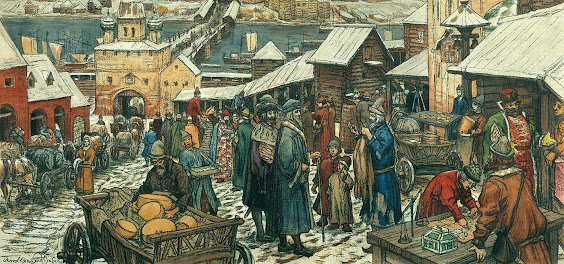Most of this post's contents will be schemes describing entire economies and how they function. There was a bit of that in Part 1, but it rarely extended beyond small communities. Everything here will be stuff that works at the scale of whole kingdoms, and oftentimes is most effective when contrasted against neighboring kingdoms which don't share these traits. If nothing else, it's decently educational for folks who find this stuff interesting and it's very often good worldbuilding fuel.
A common theme for these is new choices that players can make to acquire or use their rewards. The classic options are 1) go on an adventure where treasure is found, or 2) get paid treasure to go on an adventure. The former is self-directed, the latter is NPC-directed. Sometimes the DM will offer other avenues of gaining rewards though, like running a modest business in downtime, gambling, or swearing patronage to a demon lord in exchange for dark power. I think players should have a buffet of these options to indulge in at their own discretion. But to do that, you need novel options. Well this post expands that list and complicates a lot of what was already on it.


